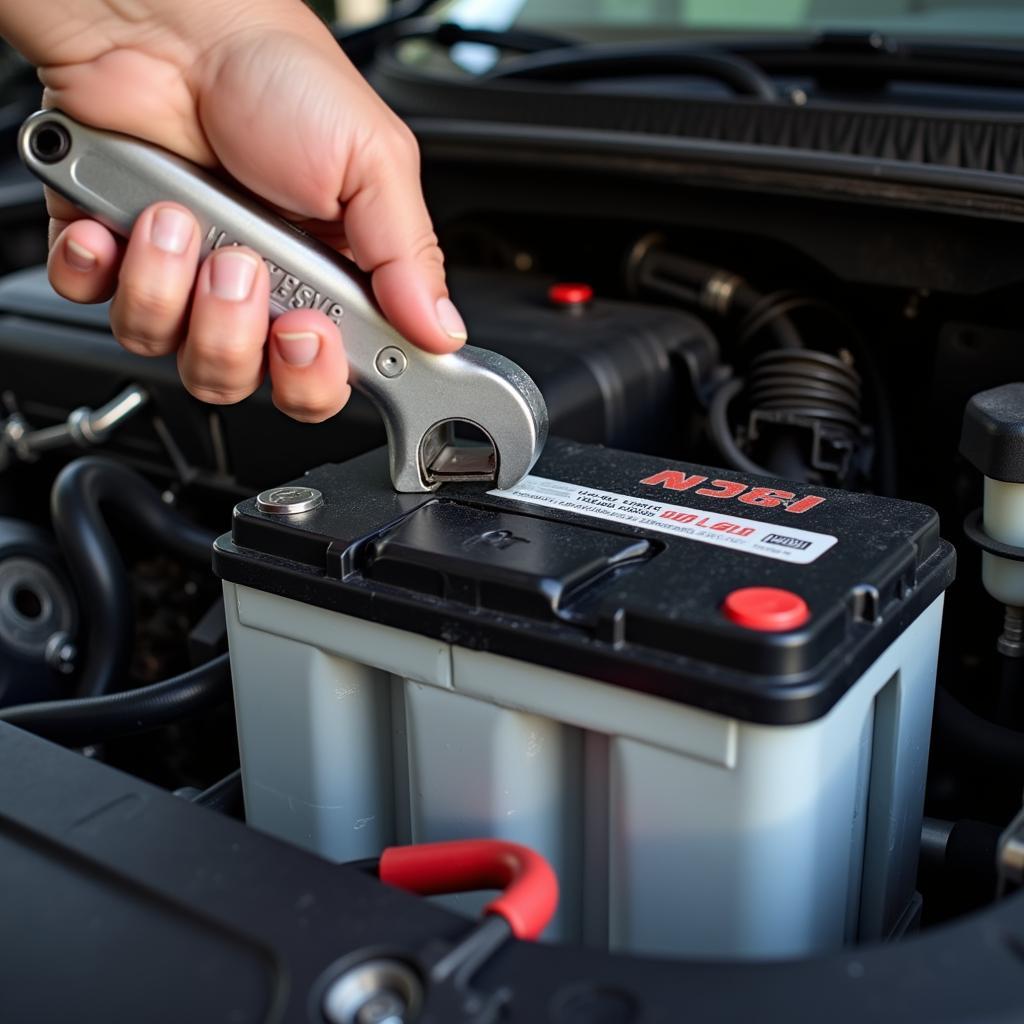Car Reverse Sensor Problems can be frustrating, turning a simple parking maneuver into a stressful ordeal. This guide will help you understand, troubleshoot, and potentially fix these issues, whether you’re a car owner, mechanic, or automotive technician. We’ll cover everything from the basics of how these systems work to more advanced diagnostic techniques.
Reverse parking sensors are a crucial safety feature in modern vehicles, assisting drivers in navigating tight spaces and avoiding collisions. These systems use ultrasonic waves to detect obstacles behind the car and alert the driver through audible beeps. However, like any electronic system, they can malfunction, leading to inaccurate readings, constant beeping, or no beeping at all. Understanding the potential causes of these malfunctions is the first step towards resolving your car reverse sensor problem.
Understanding Your Car’s Reverse Sensors
Reverse sensors, also known as parking sensors or parking assist systems, typically consist of several ultrasonic sensors embedded in the rear bumper, a control unit, and an audible warning system. When the car is put into reverse, the sensors emit ultrasonic waves. These waves bounce off any obstacles behind the vehicle and return to the sensors. The control unit calculates the distance to the obstacle based on the time it takes for the waves to return. If an obstacle is too close, the system alerts the driver with beeps that increase in frequency as the car gets closer to the object.
Common Causes of Car Reverse Sensor Problems
Several factors can contribute to a car reverse sensor problem. Some common culprits include:
-
Faulty Sensors: A damaged or malfunctioning sensor can send inaccurate readings or no readings at all. Physical damage from minor collisions or exposure to harsh weather conditions can affect the sensor’s performance.
-
Wiring Issues: Loose, corroded, or damaged wiring can disrupt the communication between the sensors and the control unit. This can lead to intermittent or complete system failure.
-
Control Unit Malfunction: The control unit, the brain of the system, can also malfunction, causing a variety of issues.
-
Environmental Factors: Heavy rain, snow, or ice can sometimes interfere with the sensors’ ability to detect obstacles accurately. Even excessive dirt or mud buildup on the sensors can cause problems.
If you are having problems with your Avis car rental, check out this helpful resource: problems with avis car rental.
Troubleshooting Car Reverse Sensor Issues
Diagnosing a car reverse sensor problem often involves a systematic approach. Here are some steps you can take:
-
Visual Inspection: Start by visually inspecting the sensors for any signs of physical damage, dirt, or debris.
-
Cleaning the Sensors: Carefully clean the sensors with a soft cloth or brush and some water.
-
Checking the Wiring: Inspect the wiring connections for any looseness, corrosion, or damage.
-
Testing the Sensors: A multimeter can be used to test the voltage and resistance of the sensors.
-
Checking the Fuse: Ensure the fuse associated with the reverse sensor system is not blown.
Using a Multimeter for Diagnosis
A multimeter is a valuable tool for diagnosing electrical issues. It can be used to check the voltage and resistance of the sensors. Consult your car’s service manual for the specific voltage and resistance values for your vehicle’s sensors.
“A multimeter is your best friend when dealing with electrical gremlins,” says John Smith, a seasoned automotive electrician with over 20 years of experience. “It allows you to pinpoint the problem area quickly and accurately.”
For those experiencing issues with Avis car hire, this link might be helpful: avis car hire problems. It provides valuable insights and potential solutions. Furthermore, understanding which car manufacturers have the least problems can be beneficial. Check out this resource for more information: car manufacturers with the least problems.
When to Seek Professional Help
While some car reverse sensor problems can be resolved with simple DIY fixes, more complex issues may require the expertise of a qualified technician. If you are unsure about performing any of the troubleshooting steps or if the problem persists, it’s best to seek professional help.
“Don’t hesitate to seek professional help if you’re not comfortable working on your car’s electrical system,” advises Jane Doe, a certified automotive technician. “It’s always better to be safe than sorry.”
Conclusion
Car reverse sensor problems can range from minor annoyances to significant safety concerns. By understanding how these systems work and applying some basic troubleshooting techniques, you can often identify and resolve the issue. However, remember that professional help is always available if needed. Don’t let a car reverse sensor problem keep you from enjoying the convenience and safety these systems provide.
If you need further assistance or have any questions, feel free to contact us at AutoTipPro. Our team of experts is always ready to help.
Contact Information:
Phone: +1 (641) 206-8880
Office: 500 N St Mary’s St, San Antonio, TX 78205, United States
This informative article regarding engine problems with club cars might be helpful: engine problems with club car. It offers a comprehensive guide to troubleshooting and resolving these issues. Also, if you’ve encountered problems at Avis car rental, this resource could prove useful: problems at avis car rental.






Leave a Reply